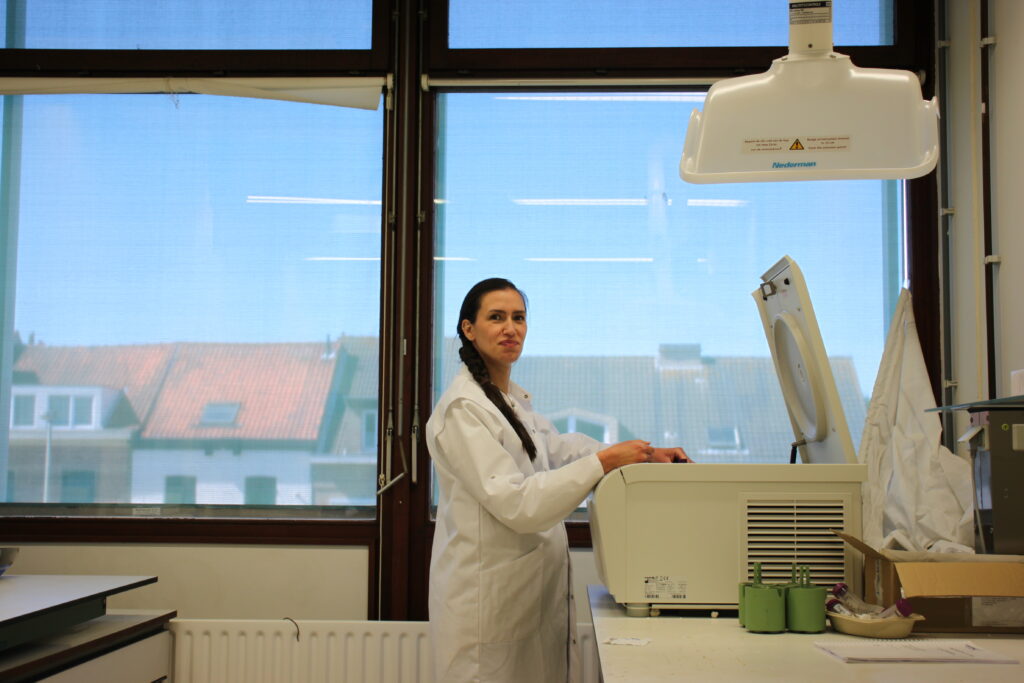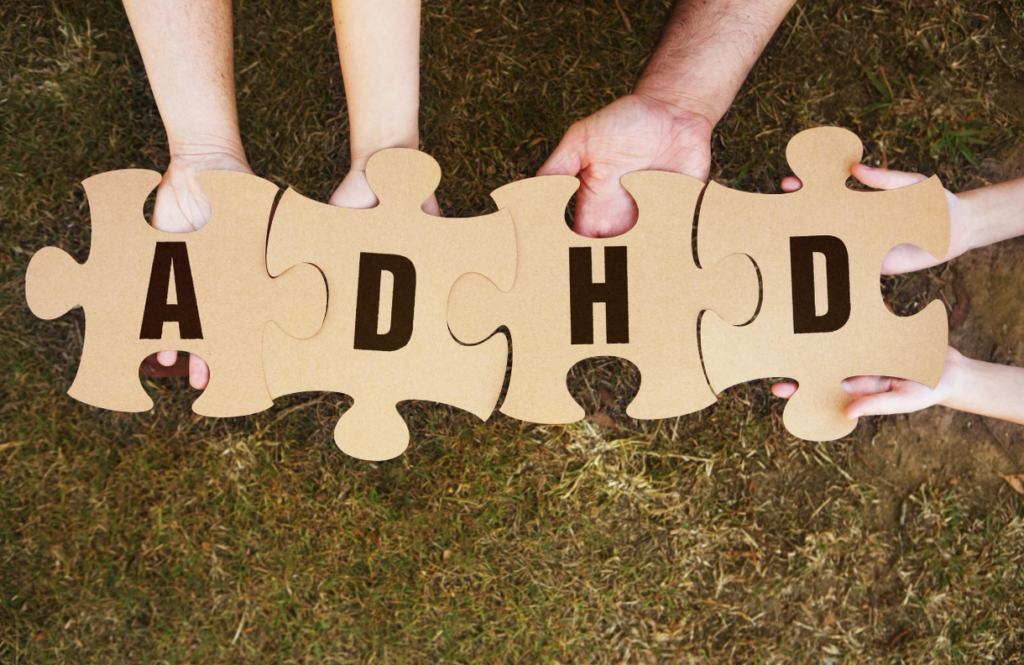Despite decades of research and recent advances based on genetics and brain imaging, the exact mechanisms underlying Attention Deficit Hyperactivity Disorder (ADHD) and a viable and effective treatment are still undiscovered. Dr. Annelies Verlaet, a researcher in the NatuRA group (Natural Products and Food Research and Analysis) is investigating the use of plant extracts for the treatment of ADHD.

ADHD is a mental health disorder characterised by above-normal levels of hyperactive and impulsive behaviors. People with ADHD may also have difficulties focusing their attention on a single task or sitting still for long periods of time. Both children and adults can have ADHD.
It is one of the most prevalent chronic paediatric conditions, with a worldwide prevalence of 6-7% in children and adolescents. Approximately one child per class is severely affected by inattention, hyperactivity and/or impulsivity, and potentially multiple other conditions that co-occur with ADHD, such as autism, anxiety, learning disorders and conduct disorder. Symptoms and related impairment persist into adolescence and adulthood in the majority of affected children. Overall, ADHD leads to a considerable personal, social and financial burden to patients, their environment and society as a whole.

Despite the high prevalence and impact of ADHD, its treatment is not optimal. Though pharmacological treatment is generally only advised in case of severe symptoms and when psychological and behavioural interventions are insufficient, currently, the main treatment for ADHD is pharmacological, using mostly stimulant drugs such as methylphenidate (MPH, e.g. Ritalin®, Equasym®, Medikinet®). MPH is prescribed to a rapidly growing number of patients despite adverse effects such as insomnia and decreased appetite in 25% of patients, effects on heart rate and blood pressure and potential acute and/or long-lasting alterations of brain structure and function. Moreover, reported efficacy appears affected by publication bias, while evidence of long-term efficacy is lacking. Furthermore, non-adherence to therapy is high. Parents are often disinclined to use MPH, unwilling to accept that medication is the only feasible treatment option for their child.
Other therapeutic options are therefore warranted. In fact, parents often indicate they want to give something more natural, or a diet-based treatment.
Are there alternatives?
Various alternatives have been tested, including omega-3 (ω-3), iron or zinc supplements, vitamin D, polyphenol-rich extracts or multi-ingredient formulas. Why haven’t any of these research programs lead to a viable, well substantiated treatment option? Is there an effective alternative for medication?
Most research investigating the effects of nutrition on ADHD is focused on ω-3 fatty acids, which could be linked to ADHD because of their importance in brain development and function. Despite numerous studies, evidence on a potential beneficial effect of ω-3 supplementation on ADHD is limited. Multiple reviews and meta-analyses report small, beneficial effects, but others do not support any therapeutic effects or only small effects on inattention, but not on hyperactivity or impulsivity.
Especially the duration, dose and composition of supplementation appear to influence the behavioural effects. However, large variability and weaknesses in research methodology (small sample sizes, variability of selection criteria, supplementation type and dosage, potentially active placebos and short follow-up periods) make it difficult to draw firm conclusions. This is not only true for ω-3 supplements, but also for generally all other alternatives mentioned above. Overall, only a few small-scale and short-term studies, some not even double-blind, have been performed for each potential alternative.
Why haven’t researchers paid more attention to specific alternatives? Why haven’t multiple larger and methodologically firm clinical trials been set up? Why not more and better research?
- First and possibly most importantly: research is expensive. Financial resources may limit many university research groups to set up a clinical trial without governmental or industry funds. Funding is limited in the nutritional supplement industry.
- Setting up a clinical trial is a long and complex process, which requires appropriate quality controls, protection of participants and proper medical data collection and analyses.
- Dietary confounding factors can influence results, while standardisation, characterisation and quality control of nutritional supplements is a prerequisite, but is often lacking.
- Recruiting patients for clinical trials is often difficult. For example, patients frequently already use dietary supplements without an official diagnosis. Also, potentially being assigned into the placebo group may not be very appealing to patients that experience a heavy burden of ADHD.
- Multiple well-performed studies on comparable populations, using the same standardised supplement and validated methods, are required to prove (or disprove) its effect.
Research at UAntwerp
Currently, a clinical trial determining the effects of Pycnogenol® on ADHD symptoms is being conducted by the NatuRA group at UAntwerp, partly funded by FWO Flanders. Pycnogenol® is a patented herbal extract from the outer bark of French maritime pine (Pinus pinaster). It is standardised to contain 70 ± 5% (w/w) procyanidins, a type of polyphenol. Polyphenols are plant secondary metabolites that are found in green tea, cocoa, and red wine.
Polyphenols in general, and procyanidins and Pycnogenol® in specific, are known for their antioxidant and immune modulating effects. As ADHD has been linked to oxidative stress and immune imbalances, which are interrelated and can both damage brain cells, thereby causing deviant behaviour, this extract seems ideal in ADHD therapy. One small randomised trial has suggested its therapeutic benefit in ADHD. However, this trial had some limitations (e.g. short supplementation period) and the mechanisms of action involved remain unclear. In addition, the efficacy and value of Pycnogenol® in ADHD as compared to MPH treatment remains to be confirmed.
This clinical trial currently being conducted by UAntwerp is a randomised double-blind placebo and active treatment controlled multicentre trial with three parallel treatment arms, to compare the effects of Pycnogenol®, MPH and placebo on the behaviour of 144 paediatric ADHD and Attention Deficit Disorder (ADD) patients over a 10-week period. In addition to behaviour, also immunity, oxidative stress, dietary habits and side effects will be assessed. The active control arm is new compared to the previous trial, and is of great importance, as patients and parents are often concerned about side effects of MPH. Hopefully, the results of this trial will confirm that Pycnogenol® can be used as a valid alternative for MPH, improving behaviour without side effects.

You can help our research!
Alternative treatment options for ADHD are needed, but research is expensive and participants can be difficult to find. So maybe, you can help us? Perhaps you know someone who would be interested in participating in this clinical trial? Or you would like to make a donation to help support our research? You can find more information (in Dutch) here. Many thanks!
Article written by Dr. Annelies Verlaet. Edited by Dr. Bronwen Martin
